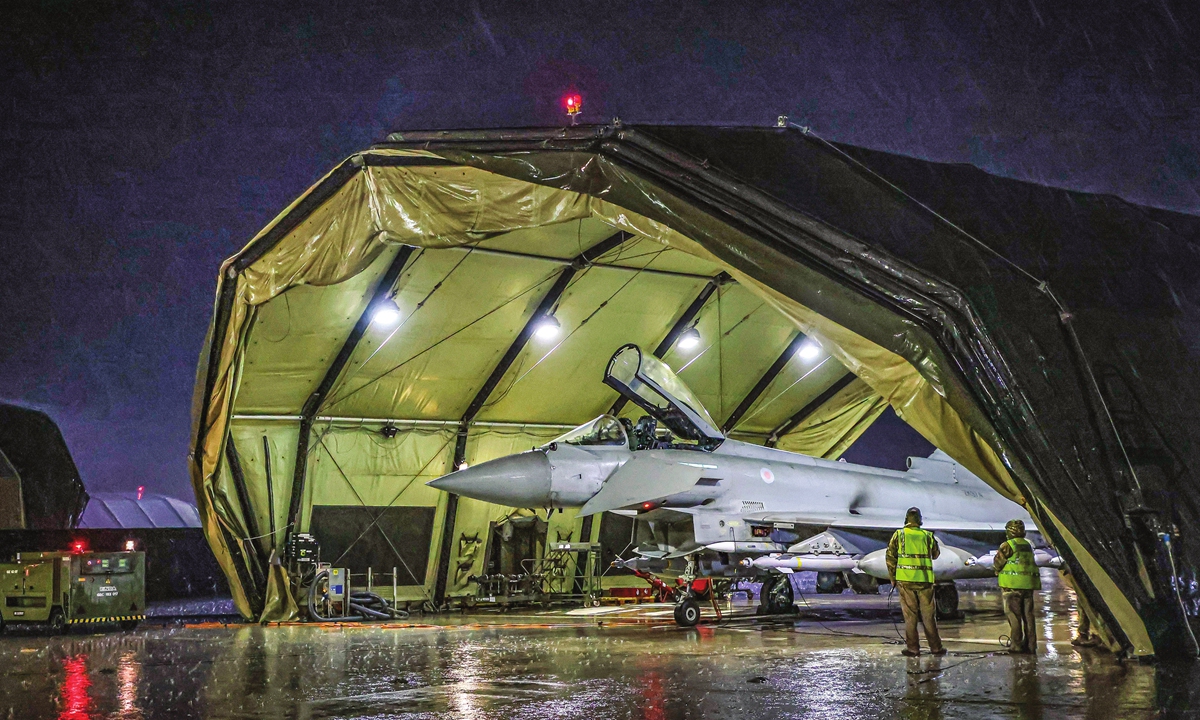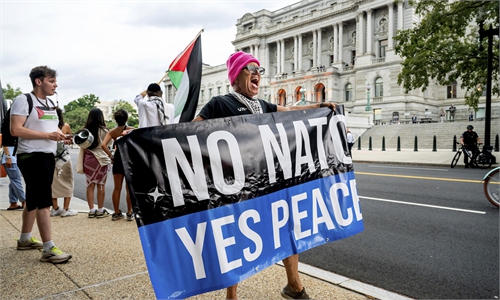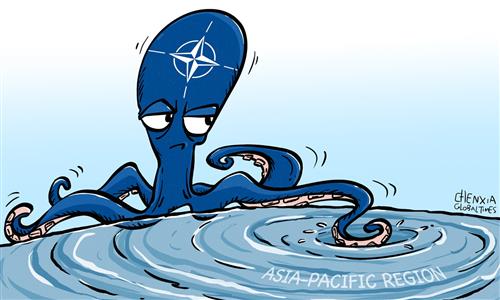
In this image provided by the UK Ministry of Defence, a Royal Air Force Typhoon FGR4 is prepared to take off and carry out Air Strikes against Houthi military targets in Yemen, on January 22, 2024. Photo: VCG
Former NATO secretary general and the newly appointed head of the UK government's defense review George Robertson has labeled China, Russia, Iran and North Korea as a "deadly quartet," who are acting together against the West, while floating the idea that the UK has to be prepared to take on all four if necessary.
Chinese observers consider that this language of a so-called quartet binding the four countries together, including China, reflects only NATO's common practice of selfishness, as the north Atlantic alliance always creates crises and disasters as an excuse for its own survival and strength, while shifting internal conflicts onto others.
Flanked by the new British Defense Secretary John Healey, Robertson told a briefing that "we're confronted by a deadly quartet of nations increasingly working together," and that Britain and its NATO allies have "got to be able to confront that particular quartet," the Guardian reported on Tuesday.
Robertson, who was also a defense secretary under the previous Labour government led by former prime minister Tony Blair, was speaking as his appointment to lead a three-person defense review was announced by Healey.
The team will report to Prime Minister Keir Starmer and Chancellor Rachel Reeves, and its work will help determine when Labour would, as it has promised, lift defense spending to 2.5 percent of GDP from its existing level of 2.32 percent, said the report.
The review chief's China phrasing was a marked shift in tone from the previous government's approach, which preferred to describe Beijing as a "systemic challenge" rather than a threat, but reflects a toughening seen at last week's NATO summit, the report pointed out.
Chinese observers noted that inciting crises and disasters as an excuse for NATO's survival and strength is selfish, as it sacrifices the interests of other countries and the broader international community. Strategic selfishness is also a typical way for the US and other Western countries to shift internal conflicts and crises onto others.
The British politician's remarks came after the NATO summit held last week in Washington, DC, during which the Cold War mentality-driven bloc issued a direct warning to China for the first time regarding so-called support to Russia in the Ukraine crisis, calling China "a decisive enabler of Russia's war against Ukraine," The AP reported.
Robertson said that the "NATO summit last week in Washington made it perfectly clear that the challenge of China was something that had to be taken very, very seriously," and that "what happens in the Asia-Pacific can happen in the Euro-Atlantic very quickly afterwards," the Guardian reported.
According to Li Haidong, a professor at the China Foreign Affairs University, such phrasing shows only a stance typically imposed by the US onto NATO member states, but this does not represent the individual positions of each member state and should be distinguished. Within NATO, member states handle their relations with China based on their national interests, not necessarily following NATO's stance, as they are unwilling to sacrifice their major interests to satisfy the demands of the US and NATO.
China should resolutely let the facts speak for themselves. The West uses its media and powerful communication capabilities to distort and misrepresent our efforts, misleading many countries in the international community with the so-called facts that have been shaped, censored, and distorted by Western media, Chinese observers said.



